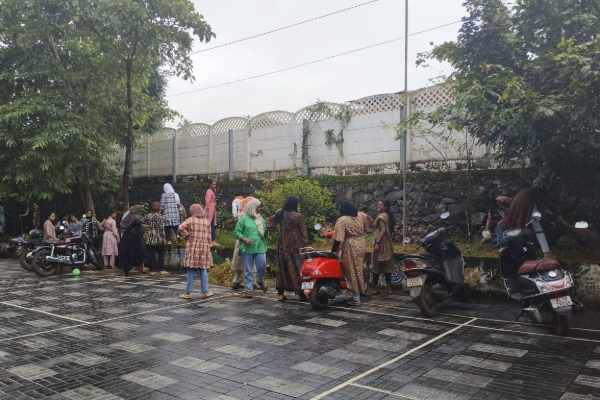
College Campus
| GREEN ARMY |
The "Green Army" on our campus is a student-led initiative dedicated to promoting environmental sustainability and fostering a culture of eco-consciousness. As a teacher training institute, we understand the importance of instilling these values in future educators, who will then pass them on to generations to come.
Here's a glimpse into the Green Army's activities:
- Plantation Drives: Regular tree-planting campaigns are organized to increase the campus's green cover and contribute to carbon sequestration. Students actively participate in planting and nurturing saplings.
- Waste Management: The Green Army spearheads waste segregation and recycling initiatives, promoting responsible waste disposal practices. They conduct awareness campaigns on reducing plastic usage and composting organic waste.
- Energy Conservation: The group promotes energy-saving measures, such as switching off lights and fans when not in use and encouraging the use of natural lighting. They also advocate for the adoption of renewable energy sources.
- Environmental Awareness Campaigns: The Green Army organizes workshops, seminars, and exhibitions to educate the campus community about environmental issues and sustainable practices. They utilize posters, presentations, and interactive activities to raise awareness.
- Campus Cleanliness Drives: Regular clean-up drives are conducted to maintain a clean and hygienic campus environment. Students actively participate in removing litter and promoting cleanliness.
- Sustainable Living Practices: The Green Army encourages the use of eco-friendly alternatives in daily life, such as reusable bags, water bottles, and sustainable transportation. They also promote water conservation practices.
- Creating awareness through street plays and flash mobs: The green army uses creative methods to get the message out to the student body.

